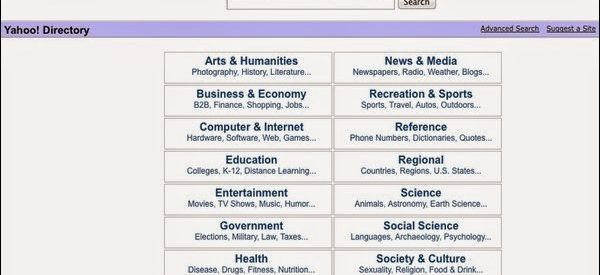Founded in 1994 by Jerry Yang and David Filo, Yahoo! was one of the pioneers of the early Internet era in the 1990s. The company has grown rapidly to become a full-featured Web portal with a host of services covering most user needs with the search engine Yahoo! Search around which was grafted Yahoo! Directory, Yahoo! Mail, Yahoo! News or Yahoo! Finance to name just a few of the many services offered by Yahoo!.
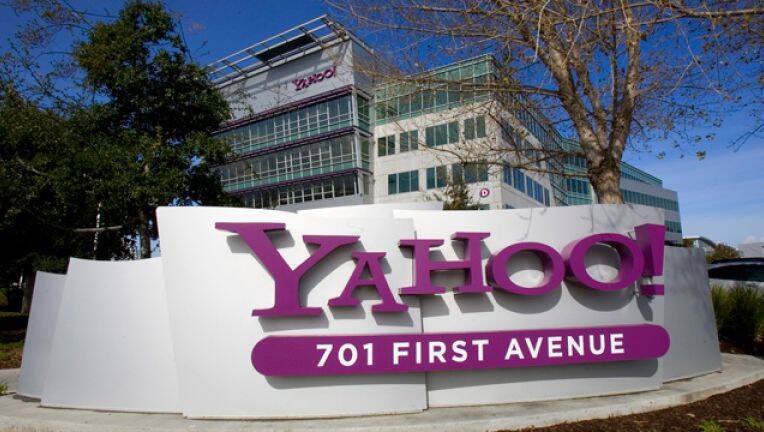
In the early 2000s, just before the dot-com bubble burst, Yahoo! was the most visited site in the world. During the 2000s, Yahoo! accumulated the wrong choices and eventually lost all its value. Yahoo! activities was even divided into two parts in 2017. Thus, Verizon acquired Yahoo!?s Internet division for $4.48 billion while the shares in Alibaba and Yahoo! Japan were held in the newly created company Altaba.
It is 2019 and even if Yahoo! remains in the Top 10 of the most visited sites in the world, it is hard to see how the company could regain its former glory. It even seems to be condemned to vegetate like this now. All this led me to come back to the 6 reasons that explain, in my opinion, why Yahoo! failed when the company had many assets to succeed and be part of the GAFAM club.
Yahoo! Has Never Had A Real Vision
When Jerry Yang and David Filo conceived in January 1994 what would later become Yahoo!, they were still only students at Stanford. All this strangely reminiscent of the story of Google?s creation a few years later in Stanford by students Larry Page and Sergey Brin.
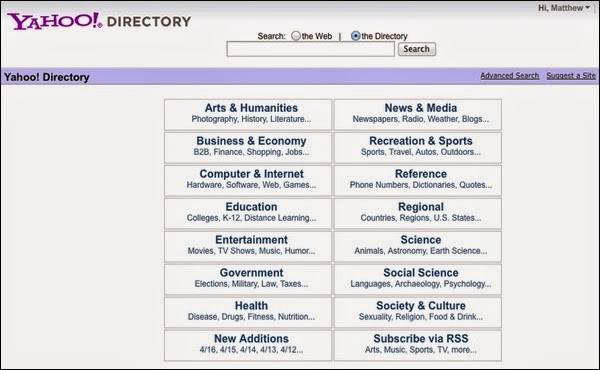
In 1994, the general public Internet was still in its infancy and although the number of websites was still relatively limited, it was difficult to find websites on specific interests? fields. Thus, Jerry Yang and David Filo?s idea is therefore to propose a directory organized in a hierarchical way of websites. Initially called ?Jerry and David?s guide to the World Wide Web?, this directory was later renamed Yahoo! in March 1994.
The idea of hierarchical organization of websites within a directory is therefore the opposite of a search engine that would index the different web pages with a crawler. Taking full advantage of the first mover advantage, Yahoo! nevertheless quickly established itself at its launch as a must and became a complete Web portal offering many other services.
Following its launch to the general public in 1996, Yahoo! is a direct competitor of the industry leaders Lycos, Excite and America Online. The success is such that the share price increases by 600% in the first two years!
All this is fine, but deep down, Yahoo! has no real vision of what its future should be. This Achilles? heel remains well hidden at that time, however, since in 1998, Yahoo is the most popular starting point for web users. In addition, Yahoo! Directory is the most popular search engine with 95 million page views per day, three times more than its main rival Excite.
Nevertheless, Yahoo! Directory is a directory published by humans which represents a colossal work. Yahoo! therefore also offers a search engine based on indexing technology but does not finance the development of its own search engine, which is a big mistake in retrospect. Even bigger is the mistake made by the leaders of Yahoo! at this time to refuse the acquisition of PageRank technology at the heart of Google when Sergey Brin and Larry Page came to see them in 1998.
Finally, Yahoo! began using Google?s services for its search engine in 2000, which allowed Google to gain notoriety and developing itself faster. At the same time, Yahoo! confirms its lack of vision for its future by multiplying acquisitions in all directions without taking the time to develop its acquisitions.
The lack of vision of Yahoo!?s executives reached its peak when they refused to buy Google in 2002 for $3 billion, considering this amount overvalued?. It should be recalled that they had acquired Geocities and Broadcast.com in 1999 for $3.6 billion and $5.7 billion respectively!
It is always this same lack of vision that will then cost Yahoo! opportunities such as the advent of social networks or the switch to mobile-first.
A Monumental Casting Error For Its CEO In 2001
At the top of the dot-com bubble, Yahoo!?s stock reached a record high of $118.75 on January 3, 2000. After the dot-com bubble burst, the Yahoo! share reached a low of $8.11 on September 26, 2001.
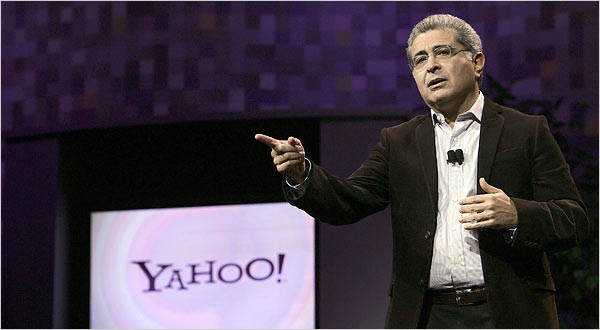
Nevertheless, Yahoo! remains strong as it is one of the most visited sites in the world. Of course, Google is starting to develop itself with its innovative search engine technology but it is not yet the giant we know today. In order to further its development and relaunch itself after the dot-com bubble burst, Yahoo! decided to hire a new CEO in 2001.
At the same time, Google also decides to hire a CEO to help the search engine move up a gear. This choice made in the same year by both companies will have a monumental impact on their future.
On the one hand, Google chooses to appoint Eric Schmidt to this position. From Novell, he is no stranger to new technologies, having spent most of his career at Sun Microsystems, where he made a significant contribution to the development and dissemination of the Java programming language. To put it simply, Eric Schmidt is clearly a man of the new economy, the Internet economy, who will take power in the 2000s.
On the other hand, Yahoo! chose to appoint a certain Terry Semel as CEO. He has a stronger background behind him, having held positions of great responsibility at the mastodon Warner Bros. to the point of becoming CEO in the mid-1990s. However, unlike Eric Schmidt, he does not know the new world of the Internet. For many, he is a man of the old world.
And this is another major mistake in Yahoo?s history: under his leadership, Yahoo! will multiply the strategic mistakes while under Eric Schmidt?s leadership, Google will multiply the paying choices.
Acquisitions At A Golden Price For Nothing
The GAFAM have become as powerful by making a very large number of acquisitions over the course of their history. All these acquisitions do not prove to be successes, but in the whole, there are always some that prove to be a great success. A pioneer among Web giants, Yahoo! has not escaped this trend and has also made many acquisitions in its history.
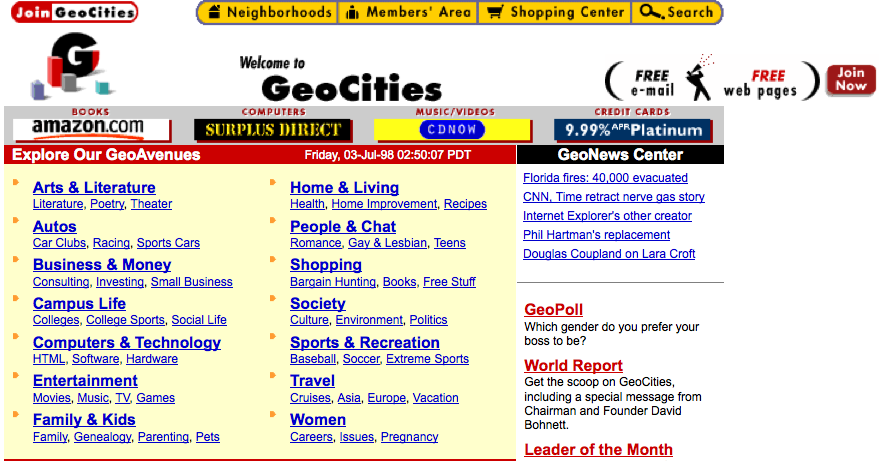
This is quite natural. However, what is less so is the incredible number of acquisitions made at a golden price by Yahoo! that have resulted in monumental failures.
It all started in 1999 when Yahoo! bought the Broadcast.com streaming platform from Mark Cuban for $5.7 billion! Of course, we were in the middle of the dot-com bubble, but still, this amount seems quite incredible. In the end, this acquisition will have resulted in nothing but making Mark Cuban ultra wealthy and allowing him to become one of the most famous NBA owners with his Dallas Mavericks franchise.
Still driven by the excitement of this period of the dot-com bubble, Yahoo! also bought GeoCities in 1999 for $3.6 billion. GeoCities was an ultra-popular solution that allowed users to easily create web pages. Yahoo! could have tried to develop GeoCities but once again, it lets the service die little by little.
In 2002, Terry Semel refused to acquire Google for between $2 billion and $3 billion. The amount seemed too high at the time and Yahoo! was still being burnt out by its failed acquisitions with Broadcast.com and GeoCities. This was again a monumental mistake as it often was with Yahoo! unfortunately.
A year later, when Yahoo! realized that Google was eating its market share in the search world, the company tried to catch up by acquiring Overture, a company that was developing a search engine for $1.63 billion. This movement was too late and was a complete waste. We all know the rest: Google has largely won the battle of search engines.
Aware that it was missing out on the wave of social networks in the second half of the 2000s, Yahoo! will once again acquire startups in all directions without successfully integrating them into its ecosystem. The acquisitions of Flickr, Delicious and Right Media are to be classified in this category. It should be remembered that the acquisition of Right Media was completed in 2007 for $850 million and that Yahoo! never really managed to take its share of the cake in the social networks world.
These few examples are unfortunately far from representing an exhaustive list of Yahoo!?s mistakes in company acquisitions. The latest example to date: the Tumblr blogging platform. Purchased for $1.1 billion by Yahoo! in 2013, Tumblr has continued to lose users under the leadership of Yahoo! and has just been sold in 2019 by Verizon to Automaticc, the publisher of WordPress.com, for an amount of approximately $10 million, more than 100 times less than when Yahoo! acquired it in 2013!
Great Missed Opportunities
Throughout its history, Yahoo! has therefore made many acquisitions at golden price that have resulted in nothing. To this problem is also added the bad tendency of Yahoo! to miss great opportunities that could have changed his future.
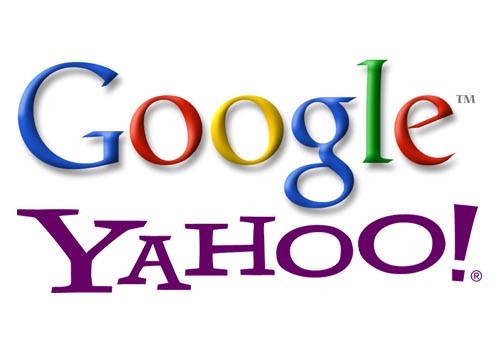
In 1998, Yahoo! is being offered by Larry Page and Sergey Brin the opportunity to purchase their revolutionary search engine algorithm for the derisory amount (today) of $1 million. Widely leader in the field of search engines with its hierarchy directory, Yahoo! do not see the value of buying this algorithm and lets pass a first opportunity to get their hands on what has made Google what it is today.
In 2002, while Yahoo! helped Google grow and gain notoriety by using its search engine technology for its Internet search engine, Terry Semel is trying to acquire Google from the founders. He is ready to put $1 billion on the table. Larry Page and Sergey Brin finally ask for $3 billion and specify that they don?t want to sale Google for putting pressure on Terry Semel, the CEO of Yahoo!. The latter ultimately considers this amount too expensive and prefers to give up this acquisition of Google that would have totally changed the future of Yahoo!
In 2006, Google has already become a leader in the world of online research. Now, the new trend in vogue is that of social networks. Again, Yahoo! did not see coming rise of this new trend. Nevertheless, the company has the opportunity this year 2006 to get their hands on Facebook to catch up. Mark Zuckerberg is asking for $1 billion for the sale of his technological nugget. Yahoo! judge this price over-estimated and prefers to make acquisitions at a lower price with Delicious or Flickr for example.
Again, it?s a huge mistake on Terry Semel?s part. These 3 major missed opportunities would have clearly enabled Yahoo! to be totally different today. Nevertheless, to achieve them, it would have been necessary to have a CEO a little visionary what was clearly not the case.
Rejection Of Various Microsoft Acquisition Offers
Aware of Google?s rise to power, Microsoft and Yahoo! have discussed an acquisition opportunity several times in 2005, 2006 and 2007. While analysts seem sceptical about the combination of these companies? technologies, Microsoft continues to be interested in Yahoo! and finally proposes $44.6 billion in early 2008 to buy all of Yahoo!
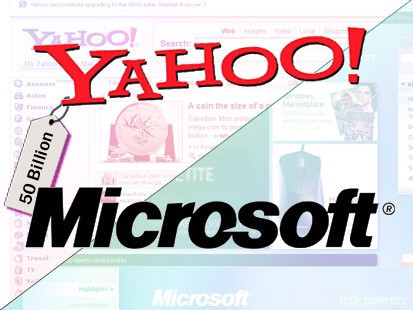
Back at the head of Yahoo! following Terry Semel?s departure, Jerry Yang is clearly opposed to such an acquisition and points out that it does not represent a fair price for Yahoo! After months of dithering and a new offer from Microsoft to simply acquire Yahoo! search engine division, the deal is not done what makes the Yahoo! stock price plunge for good.
This new missed opportunity becomes even more surprising when in 2009, Jerry Yang?s successor enters into a 10-year agreement with Microsoft to give Steve Ballmer?s company full access to its search engine technology to help Microsoft develop its internal search engine Bing.
It?s clearly not to be understood and it still illustrates the many management errors at the head of Yahoo! that have led the company to where it is today.
The Final Blow With The Appointment Of Marissa Mayer As CEO
In the middle of 2012, Yahoo! is trying to revive again by naming Marissa Mayer who made a successful career at Google. This appointment as CEO of Marissa Mayer gives rise to a lot of hope. Incidentally, Marissa Mayer becomes the youngest CEO of a Fortune 500 company.
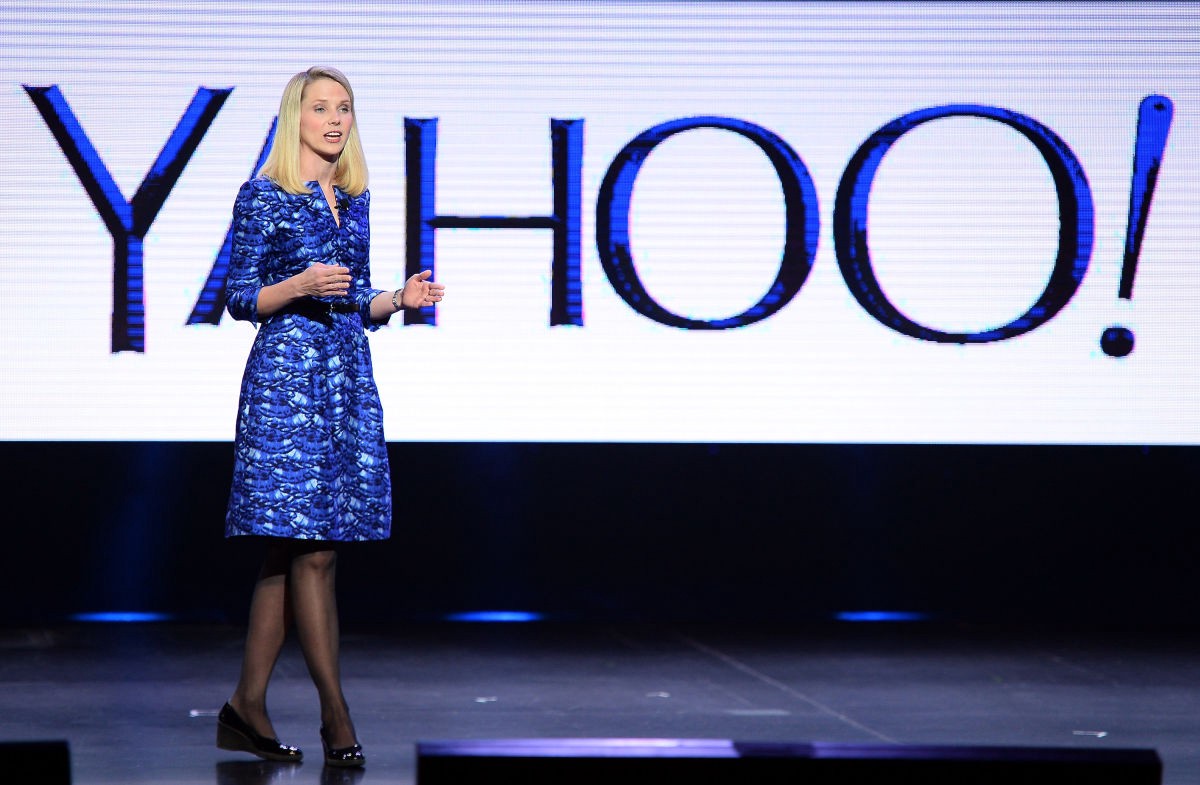
Marissa Mayer?s first few months are pretty good and she stands out with the acquisition of the Tumblr blogging platform for $1.1 billion in May 2013. This acquisition is welcomed by analysts and the hope that Yahoo! will return to the top becomes real in late summer 2013 when we learn that all Yahoo! sites have experienced more visits than Google sites in July 2013.
Unfortunately, this lull will be short-lived. The following months were disastrous. Yahoo! can?t develop Tumblr correctly, it?s slowly losing ground even if it remains popular with its fans from the beginning. The other acquisitions made by Yahoo! during the Marissa Mayer era most of the time turn into chess.
At the end of 2016, Yahoo! revealed that a hacking of its platform compromised more than 500 million user accounts in 2014. Worse still, we learn a few weeks later that another security breach has increased the total number of compromised user accounts to 1 billion. This is the biggest flaw in the history of the Internet that a Web giant has ever experienced.
All this is finishing up Yahoo! which continues to fall inexorably even though its portal remains popular with Internet users. In 2017, Yahoo! was finally bought by Verizon for ?only? $4.48 billion. A paltry amount when you think of what Yahoo! was worth in the mid-2000s. Yahoo!?s shares in Alibaba and Yahoo! Japan?s activities are not part of the deal and remain in a separate company called Altaba.
In the end, Marissa Mayer?s move to head Yahoo! was the final blow for one of the pioneers of the Web.
Conclusion
Today, Yahoo! remains an extremely popular portal as it is one of the Top 10 most visited sites in the world. Nevertheless, its 8th place does not augur well for a bright future and everything suggests that Yahoo! will continue to die gradually in the coming years to finally remain as one of the biggest waste in the history of the Web.
